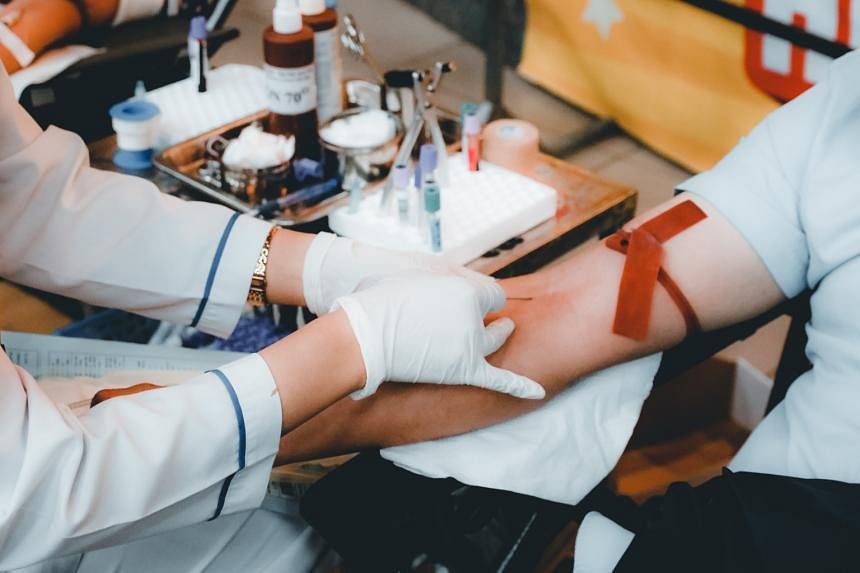NEW YORK/SAO PAULO/MELBOURNE (REUTERS) - The fight against HIV and AIDS risks being derailed by the Covid-19 pandemic and other crises, the United Nations warned on Wednesday (July 27), with progress in cutting case numbers being reversed in some countries and slowing overall.
An estimated 1.5 million people contracted HIV worldwide in 2021, said a Joint United Nations Programme on HIV/AIDS (UNAIDS) report, with the number of new cases dropping just 3.6 per cent compared to the previous year - the slowest rate of decline since 2016.
Coronavirus shutdowns frustrated initiatives to fight the virus and other world events such as the war in Ukraine have diverted funds and attention elsewhere, it said.
"The global AIDS response is in severe danger," said executive director Winnie Byanyima in a statement marking the launch of the Global AIDS Update 2022.
Annual new HIV transmissions have risen over several years in Eastern Europe and central Asia, Latin America, and the Middle East and North Africa, the report said.
The Philippines, Madagascar, Congo Republic and South Sudan are among the countries which have seen the biggest increases in cases since 2015, it added.
"During the last two years, HIV services have been interrupted in many countries, resources have shrunk, and millions of lives are now at risk," Mr Matthew Kavanagh, deputy executive director of UNAIDS, told journalists.
The war in Ukraine and the worldwide cost-of-living crisis have hampered efforts to combat the virus, the organisation warned.
An estimated 38.4 million people were living with HIV worldwide last year, UNAIDS said, roughly three quarters of whom are taking antiretroviral treatments that can make the virus a manageble condition and prevent further transmission.
However, the number of people accessing HIV treatment increased at the slowest rate in more than a decade, it said.
The organisation estimates that an additional US$29 billion (S$40.1 billion) is needed to successfully combat the HIV epidemic in low- and middle-income nations and to ultimately end the virus as a global public health threat.
"Many world leaders seem to have forgotten about HIV," said Ms Adeeba Kamarulzaman, president of the International AIDS Society, the world's largest association of HIV/AIDS professionals. "We risk veering off track in efforts to end the global HIV epidemic."
Some regions are backsliding, said UNAIDS, with cases rising in Asia and the Pacific where they had previously been falling.
In Brazil, official data shows about 770,000 people are living with diagnosed HIV, a rise of about 10 per cent within three years in a nation previously heralded by activists and governments as a success story.
Ms Maria Eduarda Aguiar da Silva, president of the HIV and AIDS rights nonprofit Grupo Pela Vidda, said widespread conservative attitudes played a role.
"In an ultra-conservative setting where you can't talk about sexuality, it's hard to talk about sexually transmitted infections," she said.
After President Jair Bolsonaro took office in 2019, the federal government closed a government division that had focused specifically on HIV, folding it into a broader department.
Racial and economic inequities also colour the Brazilian HIV epidemic, said poet Ramon Nunes Mello, who was diagnosed with the virus in 2012.
"People who die of AIDS come from colour and lower social classes," Mr Mello said.
"They are Black people and the poorest, and they die because of lack of information and of access to medication. It's surreal for Brazil to go back to that."
In the Philippines, UNAIDS data showed new annual HIV cases rose to an estimated 21,000 last year, more than double the 2015 rate.
But the number of people accessing HIV testing dropped by 61 per cent in a year as the pandemic took hold in 2020, government data showed.
Though the Philippines is broadly accepting of gay people, homophobia in some sectors of society hamper responses, said Ms Nenita Laude-Ortega, country programme manager at the AIDS Healthcare Foundation Philippines.
"This usually comes from the religious groups, and the Philippines is more than 90 per cent Christian," Ms Laude-Ortega said. "We have very, very low condom use, and actually it's the church who are not in favour of condom use."

